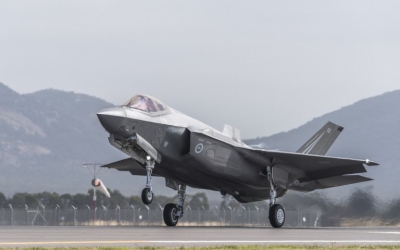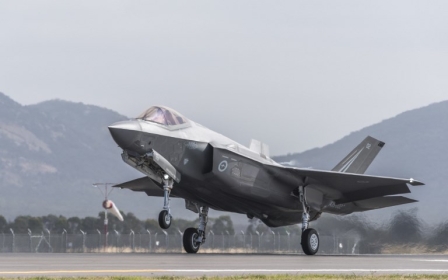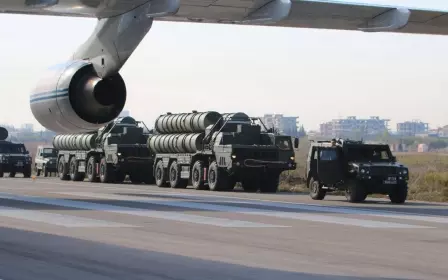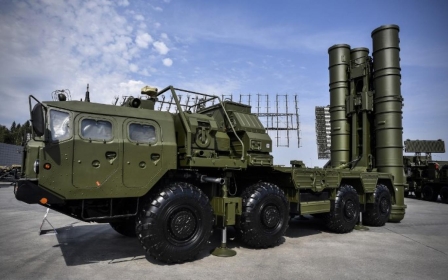Trump spars with Republican senators over possible US sanctions against Turkey
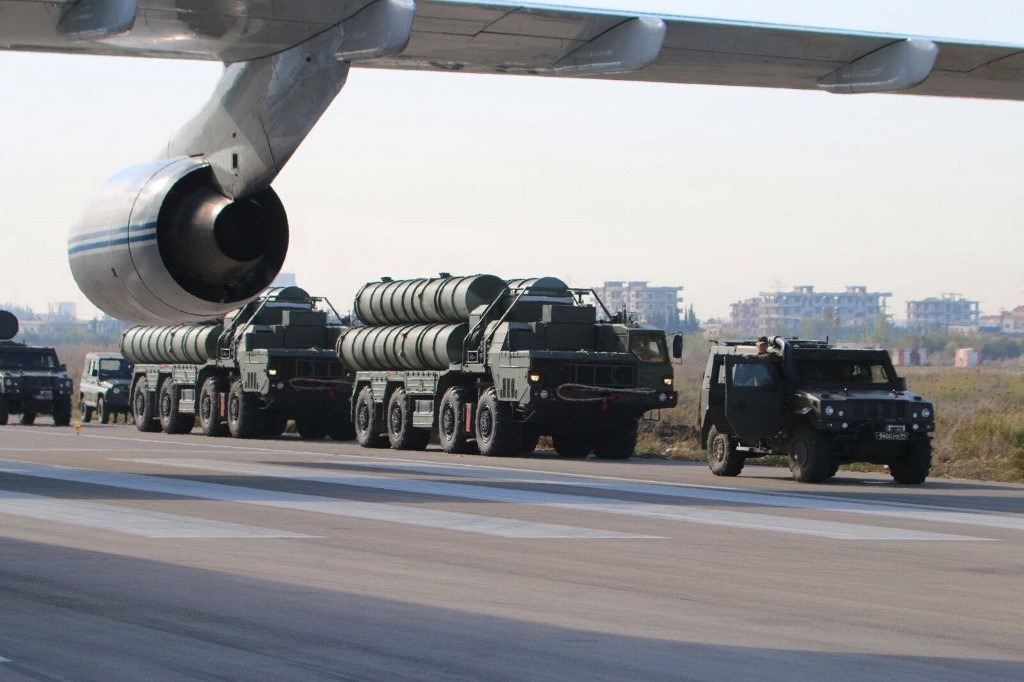
US President Donald Trump has clashed with Republican senators during a closed-door meeting at the White House over the possible use of sanctions against Turkey for its decision to purchase a missile defence system from Russia.
Trump met with dozens of members of the party on Tuesday, including Rand Paul, Lindsey Graham, Ted Cruz and James Risch, who sit on the Senate Committee on Foreign Affairs.
The discussion comes after the Trump administration last week suspended Turkey from participating in the F-35 jet programme over its refusal to renege on a deal to purchase the S-400s from Russia.
According to people in the meeting, Trump argued for negotiations with Turkey instead of strong sanctions, leading to a "robust discussion" and open dispute with Risch, the Washington Post reported.
"Everyone in the room knew there were many options available and there was spirited and robust debate on all sides of the issue," Risch spokeswoman Suzanne Wrasse said late on Tuesday.
The newspaper said that despite the meeting being specifically called to discuss the potential sanctions, several officials reported the president appeared disinterested in the issue, preferring instead to discuss healthcare, immigration and the new fiscal deal his administration reached with Congress earlier this week.
'Assurances to Erdogan'
Washington has argued that the missile defence systems put the US-made F-35s at risk, while Ankara has insisted it should be allowed to acquire both technologies. The S-400s were delivered to Turkey earlier this month.
Trump's stance is at odds with US senators from both political parties, who insist Washington must follow through on the punishments it threatened for months that Ankara would face for accepting the missile system.
Turkey's acquisition of the S-400s may open the country up to US sanctions under the Countering America's Adversaries Through Sanctions Act (CAATSA).
That 2017 act prohibits the sale of military technology to foreign entities that may breach or exploit classified components.
The Wall Street Journal had previously reported on 21 July that Trump has told his advisers that he wants to avoid sanctioning Turkey, a key NATO ally.
The US president "has given such assurances to Turkish President Recep Tayyip Erdogan", the US newspaper said, citing people familiar with the discussions.
Russian S-400s: A timeline of US-Turkey tensions
+ Show - HideIn recent weeks, tensions between the United States and Turkey have increased over Ankara's decision to purchase missile defence systems from Moscow.
The US says the Turkish government's plan to acquire Russian systems poses a threat to the F-35 aircraft, and has threatened to kick Turkey out of the F-35 programme if it doesn't scrap its deal with Russia.
Here's a timeline of tensions between the NATO allies over the past several years:
1999: The F-35 programme begins, with Turkey joining as a partner along with Australia, Canada, Denmark, Italy, the Netherlands, Norway, the United Kingdom and the United States.
September 2009: The US Defence Security Cooperation Agency (DSCA) notifies Congress that it is considering the sale of a $7.9bn Patriot missile defence system to Turkey.
5 January 2012: Turkey orders its first two F-35s.
September 2013: Turkey announces that it has decided to purchase a Chinese missile system, thereby rejecting US, Russian and French-Italian options.
7 January 2015: Turkey orders four more F-35 jets.
November 2015: After years of arguments with its NATO allies, Turkey says its deal to buy the Chinese missile system has been scrapped.
14 July 2017: Turkey agrees to purchase as many as four S-400 missile defence systems from Russia for $2.5bn. The decision means Ankara has turned down a US offer to purchase Patriot systems, which did not include a transfer of missile technology.
27 July 2017: US lawmakers pass the Countering America's Adversaries Through Sanctions Act (CAATSA), imposing sanctions on Iran, North Korea, and Russia.
The law would later be used to threaten sanctions on countries that seek Russian weapons systems, including the S-400.
April 2018: Turkey says the S-400 systems are expected to arrive in Ankara in July 2019.
June 2018: The first two F-35s are transferred to Arizona, where Turkish pilots begin training.
September 2018: Turkey begins constructing sites for the S-400 systems.
Meanwhile, US President Donald Trump's administration sanctions the Chinese military for the acquisition of S-400s in breach of CAATSA. Turkey argues it is exempt from the act, however, as its S-400 deal came before CAATSA was made into law.
December 2018: The US gives Ankara the green light to purchase a $3.5bn package of Patriot systems, giving them until 15 February to agree on a deal.
16 February 2019: Turkey says there is no going back from its deal with Russia and rejects the US offer.
19 February 2019: US Vice President Mike Pence speaks to Recep Tayyip Erdogan, urging the Turkish president to renege on the Russian S-400 deal in favour of the American one. Erdogan responds by saying that Ankara's deal with Moscow is at a point of no return.
1 April 2019: The US announces it has halted the delivery of training and other F-35 equipment to Turkey.
9 April 2019: US senators threaten sanctions on Turkey, and once again urge the country to scrap its deal with Russia. Meanwhile, two more F-35s are sent to Arizona to be used for the training of Turkish pilots.
17 April 2019: During delegation trip to Washington, Turkish Defence Minister says talks with US counterpart were "constructive", while revealing little in terms of details.
23 May 2019: Deputy Turkish foreign minister Yavuz Selim Kiran says US did not threaten Turkey with sanctions over its failure to cancel the purchase of Russian-made S-400s by the first week of June. He insists Washington is searching for temporary solutions to the crisis.
31 May 2019: Turkish officials tell Middle East Eye that the US has accepted an offer to form a joint technical study group with Turkey to investigate Washington's concerns over Ankara's purchase of the Russian-made S-400 missile system.
7 June 2019: The US presents Turkey with an ultimatum: Cancel plans to buy Russia's S-400 defence system by 31 July or be expelled from the joint F-35 training programme.
14 June 2019: Turkey threatens to take "reciprocal steps" if the US imposes sanctions over its purchase of the Russian S-400 systems.
Turkish leaders, too, have said they are confident that Trump is not going to impose sanctions on the country.
"Trump does not want to impose sanctions on Turkey," said Foreign Minister Mevlut Cavusoglu in an interview with TV station TGRT Haber, AFP news agency reported this week.
"When Trump promises something, he does his best to stick to it, but there are different points of view in the United States," Cavusoglu said.
Senate resolution
But that hasn't stopped American lawmakers from voicing their anger over Turkey's purchase of the S-400s.
Last week, Republican senators Rick Scott and Todd Young introduced a resolution condemning the Turkish government's dealings with Russia and calling for Turkey to be sanctioned under the CAATSA provision for its S-400 purchase.
'I don't believe the US is going to sanction us. But if they do, we will sanction them in return'
- Turkish President Recep Tayyip Erdogan in June
"Turkey's purchase of military systems from Russia threatens our national security and the stability of NATO," said Scott, a senator from Florida, in a statement accompanying the resolution.
Turkey's president previously warned American lawmakers against pushing for sanctions.
Erdogan said in June that Ankara would not hesitate to sanction the US in return for such punitive measures from Washington.
"I don't believe the US is going to sanction us. But if they do, we will sanction them in return," he said at the time, without elaborating further.
"We conducted our own study on S-400 radars. It doesn't harm F-35 jets," he also said at the time.
"We had good relations both with Democrats and Republicans. They should know that losing Turkey [as an ally] wouldn't be easy."
Middle East Eye delivers independent and unrivalled coverage and analysis of the Middle East, North Africa and beyond. To learn more about republishing this content and the associated fees, please fill out this form. More about MEE can be found here.


